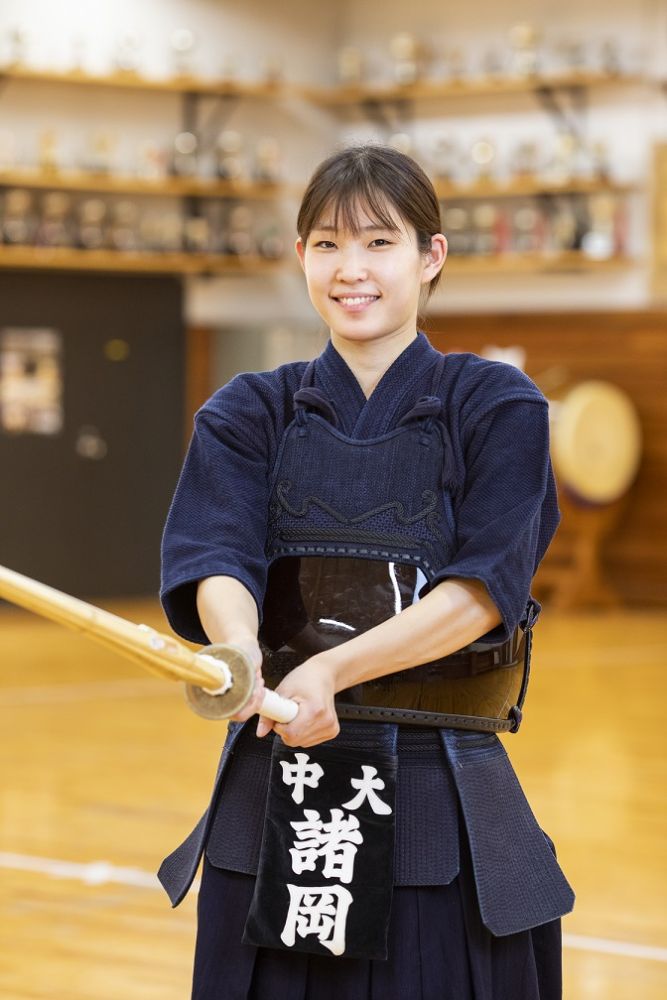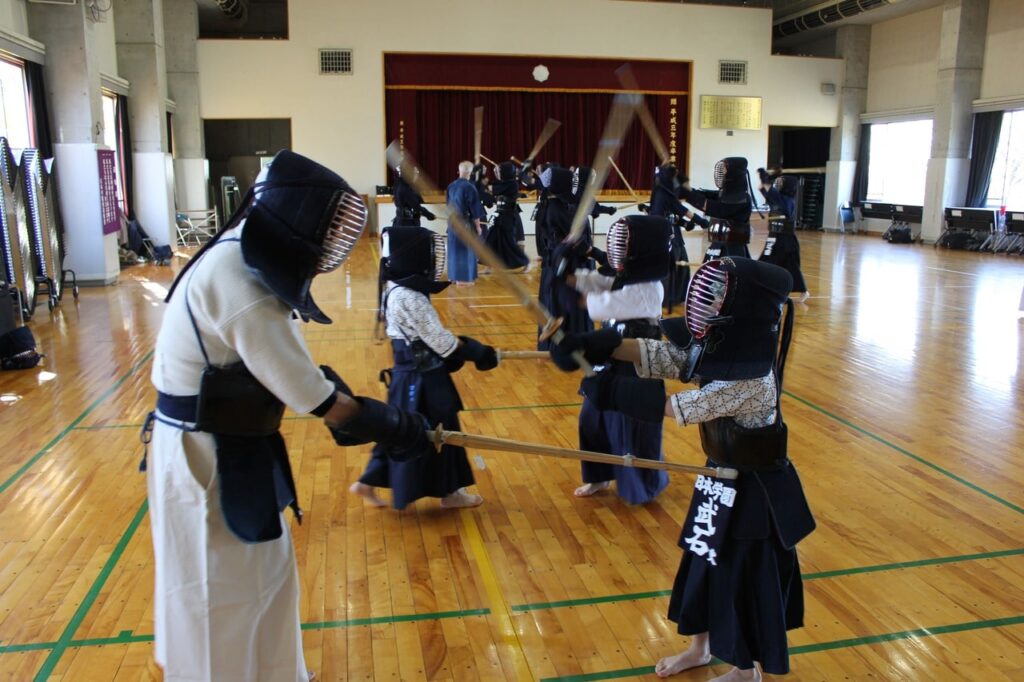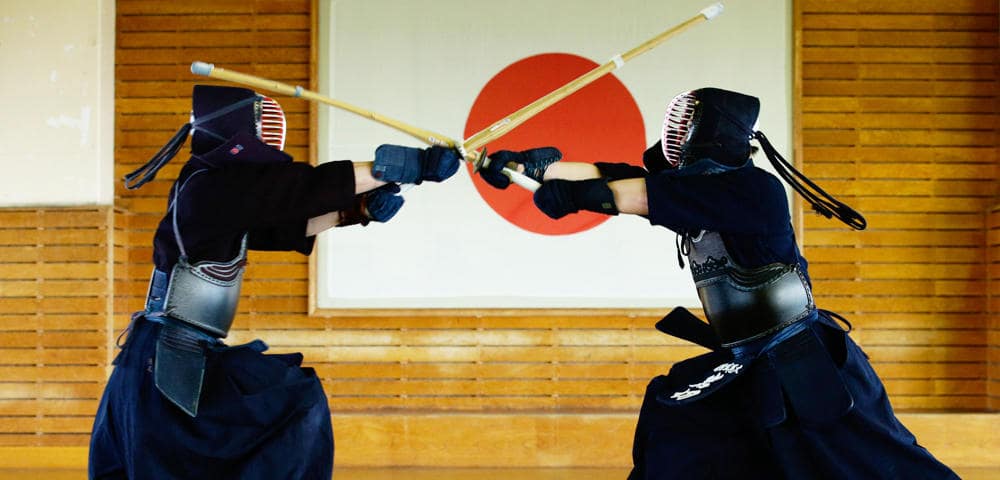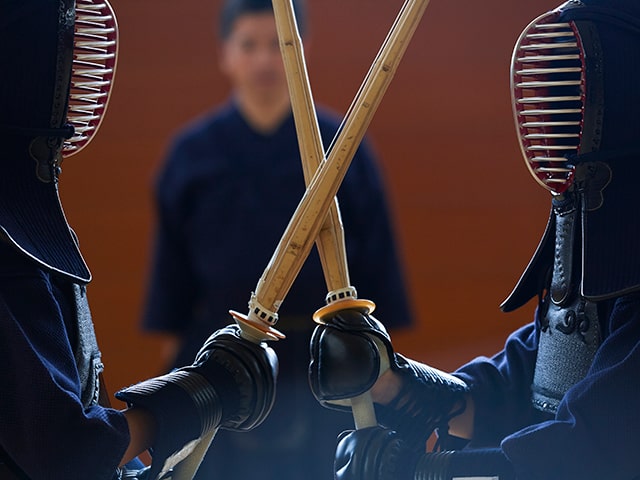
Kendo is more than just a martial art; it has a culture that values deep etiquette and morality.
In this sport, excessive expressions of victory, such as fist pumps, are prohibited during matches.
There is an important reason for this based on the spirit of Kendo. In this article, we will delve into why fist pumps are prohibited in Kendo, the background behind this, and the values that Kendo values.
We will also examine how these rules affect kendo players and how to express emotions appropriately.
目次
Introduction
Kendo is more than just a competition; it is a Japanese martial art that emphasizes morality and etiquette.
Player behavior is very important in this sport, and specific rules are in place for this purpose.
It is based on this spirit that excessive expressions of victory known as “fist pumps” are prohibited during Kendo matches.
The spirit of Kendo encompasses many values, including humility, respect, and self-control, all of which are constantly emphasized in Kendo training and practice.
Prohibiting fist pumps shows respect for others and encourages inner maturity by suppressing one’s own emotions.
This rule symbolizes that Kendo is not just an athletic competition, but a path that encourages growth as a person.
In this chapter, we will explore the specific background behind this ban and how it is perceived by Kendo players.
Through this, we will clarify the deep spiritual significance of Kendo and how it should be practiced.
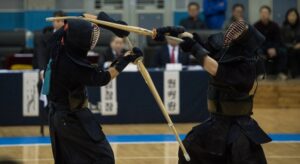
Reasons for banning fist pumps
The ban on fist pumps in Kendo is an important rule for maintaining the etiquette and spirit that is the basis of Kendo.
Kendo is not simply a sport for competing in technical skills, but a “path” for honing an individual’s spirituality and humanity.
Therefore, actions during the match must also comply with these high mental demands.
Emphasis on civility
In Kendo practice, the principle of “begins with a bow and ends with a bow” is thoroughly followed.
This principle is to show respect to opponents, referees, and spectators, and self-expression such as fist pumps are considered acts that show a lack of respect for the opponent.
Kendo requires you to control your emotions and maintain inner calm, so it is inappropriate to emphasize victory.
mental training
Kendo training emphasizes not only external technical improvement, but also internal growth.
An act like a fist pump is seen as an outburst of egocentric emotion, which is said to go against mental discipline.
Kendo aims to raise the spirit through an inner dialogue, which can be called a battle with oneself, and humility is very important in this process.
moral considerations
Kendo also has a strong moral education aspect, and its purpose is to contribute to the development of correct humanity.
Therefore, excessive expressions of victory, such as fist pumps, are considered to be actions that are contrary to this purpose.
In competitive kendo, you are expected to view both victory and defeat as part of your own growth, and accept them calmly.
The ban on fist pumps in Kendo is intended to protect etiquette, spirituality, and morality, and emphasizes that Kendo is not just a sport, but a “do” that should be continued throughout life.
With this rule, Kendo continues to retain its unique cultural identity.
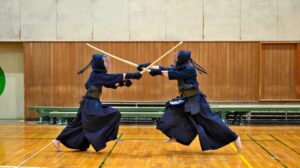
Fist pose and Kendo values
Kendo places great emphasis on values such as humility and introspection.
These values have been cultivated over Kendo’s long history and tradition, and serve as moral guidelines that each Kendo practitioner should keep in mind.
The following details why extroverted expressions of victory, such as the fist pump, are actions that are contrary to these core values of Kendo.
violates the principle of modesty
Kendo training is a process of knowing one’s own limits and constantly seeking self-improvement.
Humility plays a central role in this process of self-awareness.
Kendo practitioners are told to always look to the next step, without getting excited about victory and showing off.
Behaviors such as fist pumps go against the principle of humility, as they can over-promote oneself and show a lack of respect for the other person.
lack of self-reflection and self-control
Kendo requires self-control and maintaining inner calm.
Controlling your emotions and staying calm during a match is an important part of Kendo practice, as is technical skill.
The fist pump is an act that indicates a temporary outburst of emotion, and this lack of self-control contradicts the introspective spirituality that Kendo aims for.
civility and respect for others
A Kendo match is a place where civility is respected, as symbolized by the saying, “It begins with courtesy and ends with courtesy.”
Regardless of whether you win or lose the match, it is most important to show respect to your opponent and the referee.
Fist-pumping is often seen as a lack of respect for the opponent and is therefore considered a violation of kendo etiquette.
Through these analyses, it becomes clear how the fist pump is incompatible with Kendo’s deep values.
Kendo is a martial art that goes beyond outward victory and pursues a deeper spirituality, so it requires action in accordance with these values.
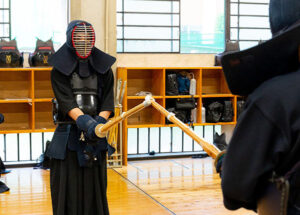
Impact of banning fist pumps on athletes
The ban on fist pumps in Kendo has a deep impact on the behavior and psychological state of athletes.
This rule is intended to help athletes learn self-control and promote mental maturity, and is said to have a long-term effect on athletes’ behavior on and off the field.
self-control of behavior
Kendo requires you to control your emotions and remain calm at all times.
With no fist pumps allowed, players learn how to take victory to heart.
This rule forces athletes to keep their emotions to themselves and compete in a culture where they are less likely to express them outwardly, thus encouraging greater spirituality.
Rather than expressing the joy of victory, players will focus on how they got that victory and how they can improve in the future.
psychological stability
Banning fist pumps may provide psychological stability for athletes.
By suppressing emotions during a match, players can be more strategic and deliberate, and avoid making poor decisions due to nervousness or excitement.
This can be especially advantageous in high-pressure matches.
Social expectations and adaptation
The culture of civility and humility in Kendo shapes the attitude that athletes should have towards society as a whole.
The ban on fist pumps reinforces the values that it is important for athletes to show humility and respect within society.
This allows athletes to be expected to behave similarly in other social settings, which can have a positive impact on their relationships and professional lives.
Specific example
What you see in kendo tournaments is that even after the players have won a match, they remain respectful and show no hostility.
This behavior reflects the unique culture of Kendo, unlike other sports. Players demonstrate their maturity by greeting after games and expressing gratitude to their opponents.
By prohibiting fist pumps, Kendo players will develop the habit of self-control and courtesy both inside and outside of competition.
This emphasizes that Kendo is not just a sport, but serves as a place to learn how to live.
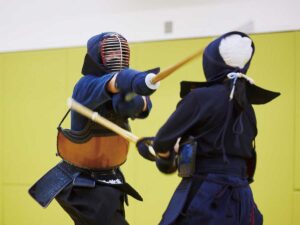
Other expressions in Kendo matches
Expressions of emotion are treated carefully in Kendo, but since direct expressions such as fist pumps are prohibited, athletes are required to express their emotions in other ways.
These expressions are consistent with the etiquette and spirit of Kendo and are intended to maintain proper behavior in the match.
bow after the match
In Kendo matches, it is mandatory to bow at the beginning and end of the match.
Even after winning, players bow calmly and show respect to their opponents and referees.
This action embodies the Kendo spirit of controlling oneself and respecting the opponent.
Expressing gratitude to someone
In Kendo, you are allowed to speak directly to your opponent after the match, and it is common to express your gratitude to your opponent.
This is an important moment to show our appreciation for the opportunity to hone our craft together and grow with each other.
expression of quiet joy
Kendo players are encouraged to quietly feel inner joy and satisfaction.
You demonstrate spiritual maturity and self-control by maintaining a sense of inner peace and contentment, rather than outward expression.
This is important to deepen the spirituality of Kendo and preserve the dignity of the match.
Continuing dedication to practice
Another way of expressing emotion in a Kendo match is to silently accept the result of the match and dedicate yourself to further training.
Regardless of victory or defeat, kendo practitioners always seek self-improvement and express this determination by continuing to practice for the next challenge.
These expressions are acceptable expressions of emotion in place of the fist pump in Kendo matches, and are in line with Kendo’s traditional values and etiquette.
The self-control and respect that athletes demonstrate through these actions strengthens the spiritual aspects of kendo and enhances its dignity as a sport.
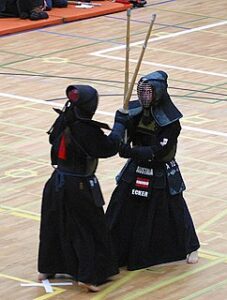
Summary and Kendo Lessons
The rule against fist pumps in Kendo goes beyond a mere formal regulation and is completely consistent with the deep precepts advocated by Kendo.
These rules reflect that Kendo is not just an athletic competition, but a “path” that promotes spiritual and moral growth, and that spirit also influences the daily lives of its athletes.
Prohibition of fist pumps and the value of Kendo
The ban on fist pumps in Kendo supports the three main principles of Kendo: self-control, humility, and respect for others.
By internalizing these values, players are expected to always behave courteously, regardless of whether the game is won or lost.
Through this process, kendo practitioners are able to manage their own emotions and develop a more mature personality.
Contribution to personal growth
Kendo provides an environment for personal growth and self-development.
By controlling their emotions during a match, players can maintain their calm during stressful situations and develop the ability to make good decisions.
This ability is extremely valuable not only in the Kendo dojo, but also in everyday life and other social situations.
Kendo and lifelong learning
Kendo is an activity that can be learned throughout a lifetime.
In addition to improving technical skills, players can also learn moral values and social behavior, all of which help them develop as better people.
Kendo training is beneficial to individual Kendo practitioners, regardless of age or experience level.
Kendo’s precepts, emphasized by the prohibition of fist pumps, help athletes deepen their understanding of how they should behave in and out of competition, reaffirming that Kendo is not just a sport, but a way of life. Masu.
By spreading this teaching throughout the Kendo community, Kendo will be passed on to the next generation while preserving its spirituality.
